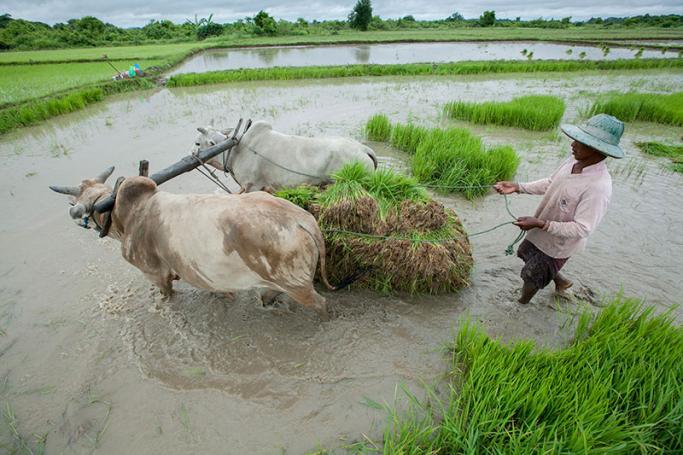On a visit to a model farm in Israel this week, the potential for Myanmar’s agricultural development was there to see. I had the opportunity to see advanced techniques that Israeli agriculturalists developed and farmers use to maximize water use and grow sustainable crops.
I assume that the main reason of the successful Israel’s agricultural economy is the favourable climate and use of advanced agricultural technology and farm equipment. Land is at a premium in this country and care is taken to make the most out of limited resources.
But in my country Myanmar, use of modern and advanced farm equipment and technology in agricultural economy is in dismal situation as I have seen on my innumerable reporting trips out into the countryside.
As the Israeli Ambassador to Myanmar Mr Daniel Zohar Zonshine made clear in a commentary Mizzima published this year, the methods Israeli farmers use including “drip irrigation” and other methods could be applicable to the development of Myanmar’s agricultural sector.
Myanmar’s farming sector offers great potential, but it has to rise from a low base.
Israeli farmers assume that high monsoon rain in our country made the low yield of our crops. I learn that Israeli ambassador in Myanmar brought some agriculture experts from Israel to study some areas in Myanmar for soil testing and they had plan to use advanced agricultural technology and to use rich resources of irrigation in our country.
In discussions with Israeli farmers, they noted the importance of having a good market for their products – both for internal consumption and export – and how a short, developed supply chain helped, given the challenges of preserving products.
I learned that Israel faces stiff competition in the European market in its export of agricultural produce, fruits and foodstuffs as Africa, which is close to Europe, is increasingly focusing on the agriculture sector and using advanced agricultural technology in it. So the situation is growing more competitive.
Israel stands in the world as a progressed and developed country in its desert land. Israel is recognized by the world as rich with ancient history, cultural and religious heritage too. As a technologically developed country, the country uses its expertise and technology in the advancement of the country.
Despite of its desert land, Israel uses technology for turning the country from desert into a successful agricultural economy. In the dry zone, they use computerized irrigation system and water vapour irrigation in agriculture.
Once interesting observation is the importance placed on allotting land to agriculture.
Under Israeli law, one can buy many acres of agricultural land but the citizens cannot buy much land to construct residential areas. Israel allows only the construction of small homes and most of the country’s land is used for agriculture, a farmer told me.
Interestingly, as I saw, most of the farm workers are from Thailand, and some are refugees employed from neighbouring countries.
As soon as landed in Israel, agricultural land and green cover were found in most of the suburbs of the town. The roads are lined with straight and high trees. Cotton, date fruit orchard, apple orchards, pomegranate and fig were mostly grown in the country and they are exported to the world markets as agricultural produce.
In most of these orchards and plantations, manpower is used to the minimum level and mechanization is greatly used. They use high tech in pest control and irrigation by computer control. As these orchards and plantations are a long term investment and crucial to the economy, they use technology to protect them from natural disasters and they use genetic engineering methods too.
Advanced Israeli farming technology offers options for Myanmar
29 September 2016
Advanced Israeli farming technology offers options for Myanmar












